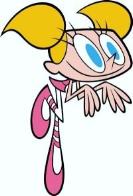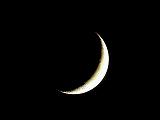 | |
|
Traducerea - Turcă-Engleză - Kadere inanırmısın? Ben inanırım.Kader veya...Status actual Traducerea
Categorie Discurs - Dragoste/Prietenie | Kadere inanırmısın? Ben inanırım.Kader veya... | | Limba sursă: Turcă
Kadere inanırmısın? Ben inanırım.Kader veya hayat, ne kadar ilginç, sürprizlerle dolu değil mi? Seni karşıma çıkardı; bu çok güzel.Ama acı olanı birbirimizden uzakta olmamız.
Gönderdiğin fotoğraflar ise; güzel bir akşam yemeğinin üzerine servis edilen tatlı gibi.
Honey kelimesinin Türkçe karşılığı bal demektir.
Sana, balım diye hitap etmek istedim. Çünkü, sen çok tatlısın.Tıpki bal gibi.
Ne kadar çok yersen, o kadar başın döner!
Sende benim balımsın.Çünkü başımı döndürdün. |
|
| | TraducereaEngleză
Tradus de  handyy handyy | Limba ţintă: Engleză
Do you believe in fate? I do! Fate, or life, is so interesting and full of suprises, isn't it? It allowed me to find you, and that is extremely good! But the upsetting thing is that we are far away from each other.
And the pictures you sent me are like a dessert which is served after a nice dinner.
The word 'honey' means 'bal' in Turkish.
I wanted to address you as 'My Honey!'. Because you are so sweet, just like honey!
The more you eat honey, the more you feel dizzy.
You are my honey as well. Because you made me feel dizzy.
|
|
Validat sau editat ultima dată de către lilian canale - 27 Iunie 2008 20:47
Ultimele mesaje | | | | |
26 Iunie 2008 18:50 | | | filled with ----> full of
"It let me encounter with you, and that is pretty great"
That's not good. Let's find another way to say that. Perhaps:
"It made me meet you..." or " It allowed me to find you..." or even "It made possible for us to meet..."
Also "pretty great" does not combine since "great" means "excellent" "extremely good"
I think you should just use "great" alone.
"You are my honey as well. Because you made me feel dizzy."
"as well" means "too". I don't understand it there, for there is not a similar sentence before that one.
And I think "made" should be "make".
The rest is fine.
What do you think?
| | |
26 Iunie 2008 19:29 | | 
handyyNumărul mesajelor scrise: 2118 | Thanks for the editings.
-- You are my honey as well.--> here the requester gives meaning "too" in his sentence.
-- "başımı döndürdün." = "you made me feel dizzy" : past tense is used in the source text. | | |
26 Iunie 2008 19:44 | | | hummm, perhaps she called him "honey" before (when sending the pictures). That would justify that "as well".
And the past tense in "made" may refer to the time when they were together.
OK, now it makes sense. To the poll! | | |
26 Iunie 2008 21:43 | | | not "she" but "he".
"honey" can be a girl and a boy can be "honey-bee".  | | |
27 Iunie 2008 13:23 | | | Probably the sentence "The word 'honey' means 'bal' in Turkish" sounds good in turkish, but it should be reversed in english like that: The word 'bal' in Turkish means honey. Cause in this case a speaker "uses" english, not turkish. Otherwise it`s nonsense
| | |
27 Iunie 2008 13:28 | | | Agree. Look how they translated it in russian, it`s correct there. | | |
27 Iunie 2008 13:31 | | | The word 'honey' means 'bal' in Turkish. is not correct | | |
27 Iunie 2008 13:38 | | | Do those ones who check read carefully?
This one "The word 'honey' means 'bal' in Turkish" sounds ok only for a nonnative speaker... | | |
27 Iunie 2008 15:20 | | 
kfetoNumărul mesajelor scrise: 953 | just replace "means" with "is"
either way meaningwise this translation is balgibi | | |
27 Iunie 2008 17:01 | | | | | |
27 Iunie 2008 17:13 | | | It`s possible this way, too.
Actually, the russian translation also is not correct. "Honey" means honey in english, not in turkish, as that translation says. |
|
| |
|

 - 27 Iunie 2008 20:47
- 27 Iunie 2008 20:47 - 27 Iunie 2008 20:47
- 27 Iunie 2008 20:47 Traduceri preferate
Traduceri preferate





